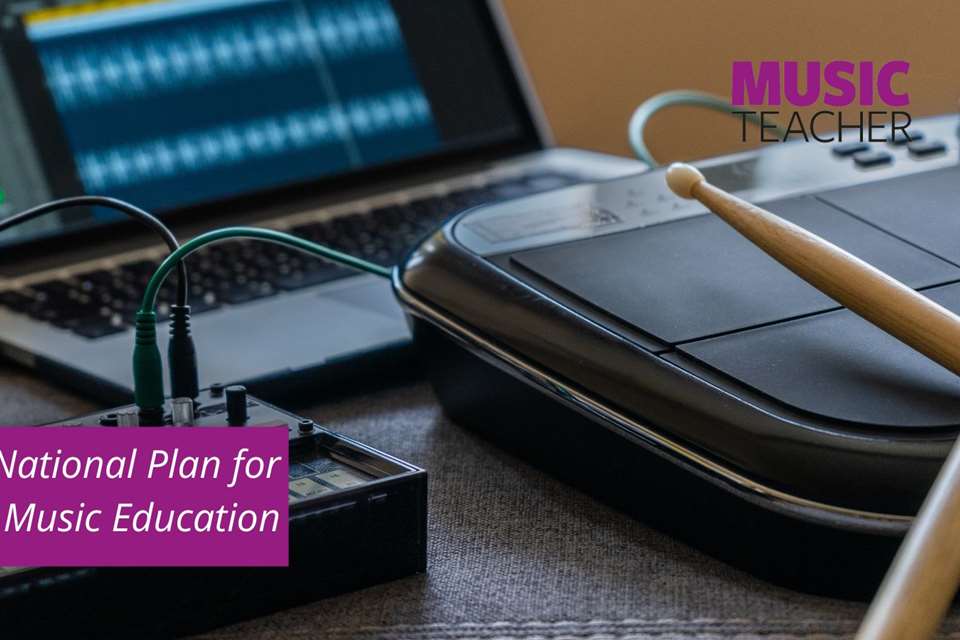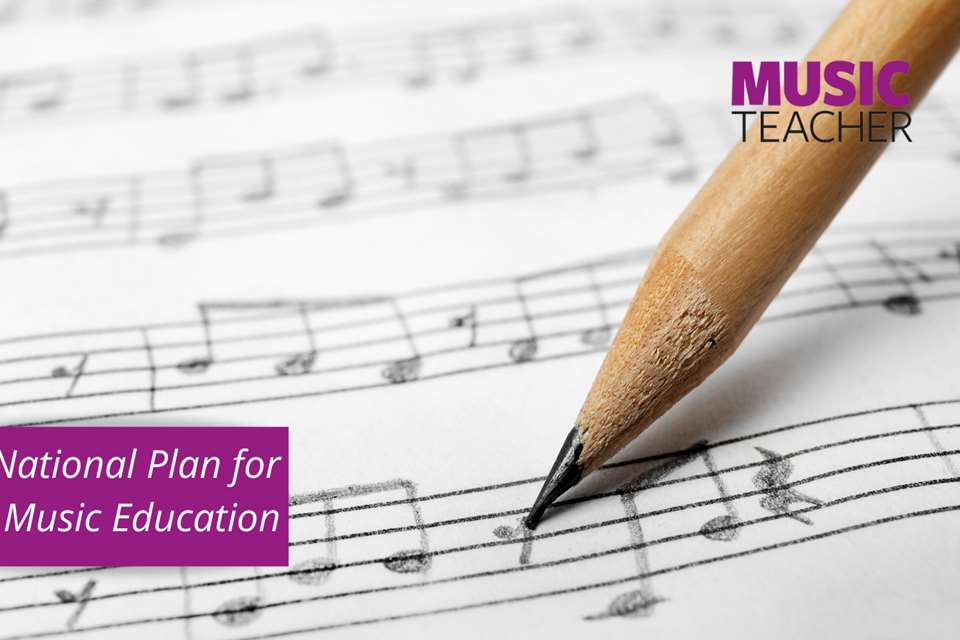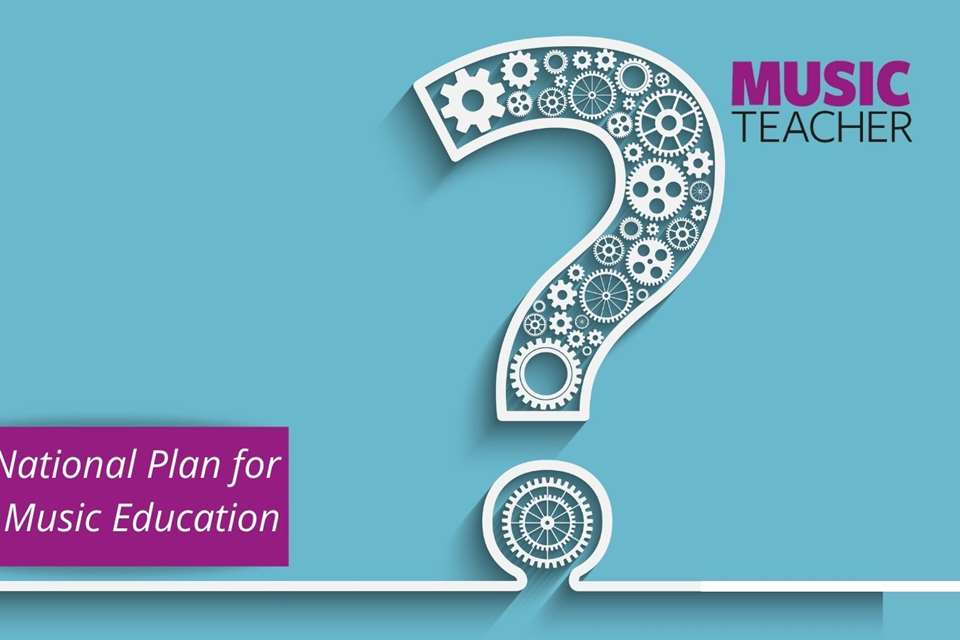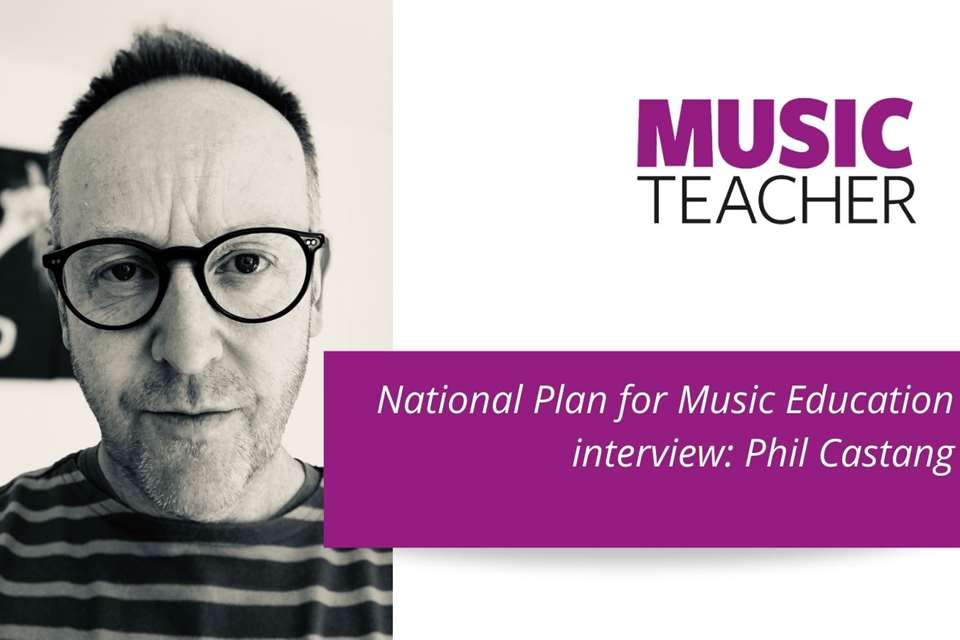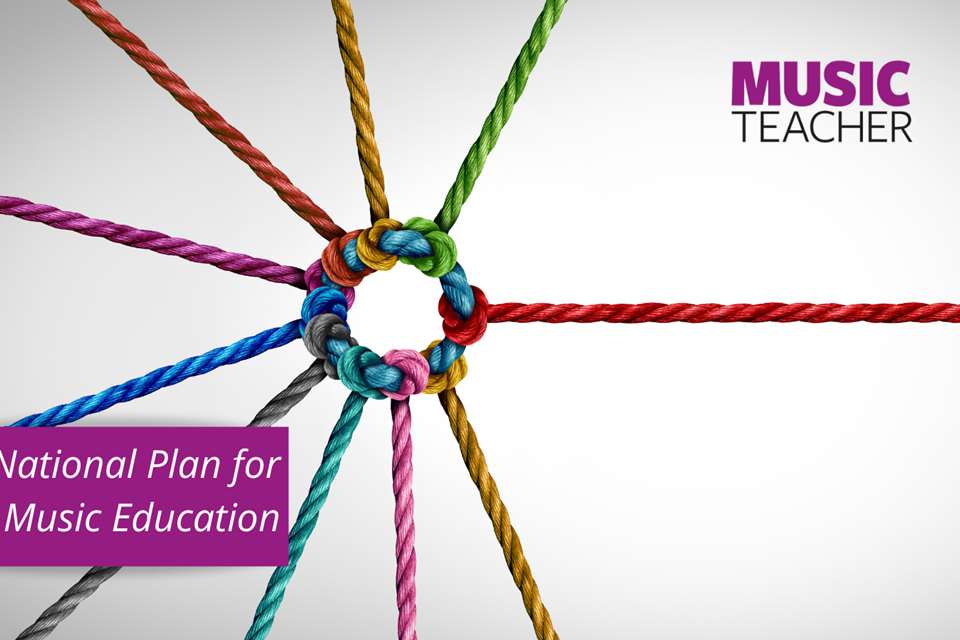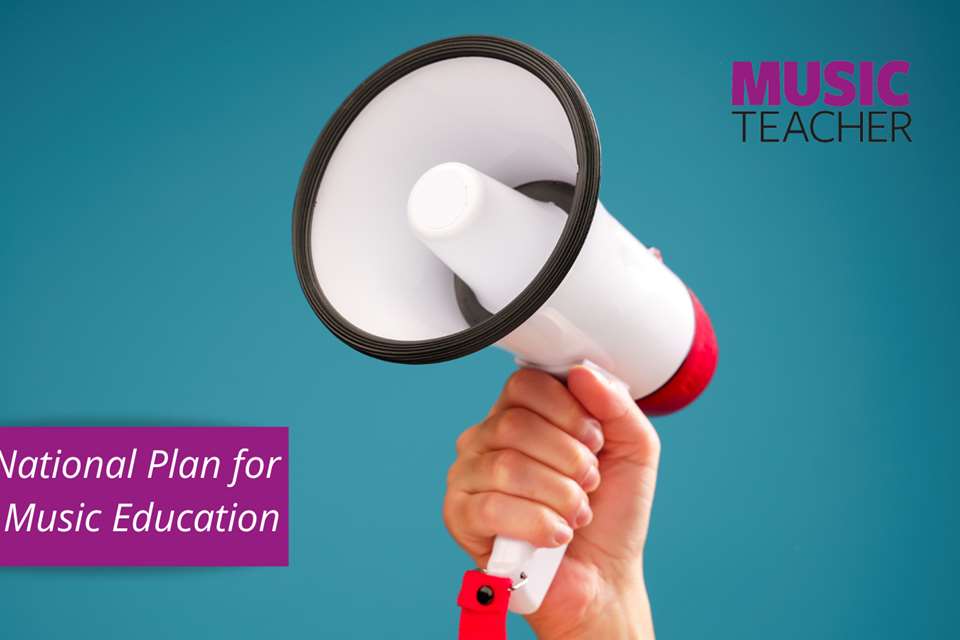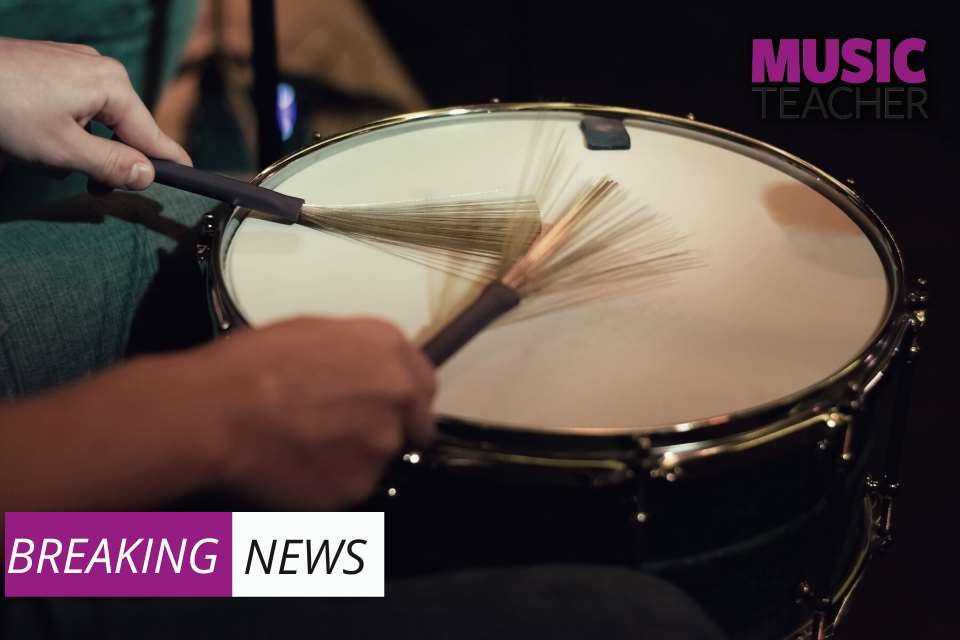National Plan for Music Education response: A plan, a plan, my kingdom for a plan!
Nigel M Taylor
Monday, November 7, 2022
Following the publication of the second National Plan for Music Education in England, Nigel M Taylor reflects on the current music education landscape and argues that more rigorous reform is needed.

EtiAmmos
So, we have a new National Plan for Music Education (NPME) 2022–2030, or rather a ‘refreshment’ of the first NPME (2012–2022).
In this article I argue that, rather like in Shakespeare’s play, where King Richard III on the field of battle seeks an illusionary solution to his problems (a horse), the Department for Education (DfE) and the Department for Digital, Culture, Media & Sport (DCMS) have articulated an interesting NPME but seem to have ignored the full extent of the circumstances and pressures that surround them. They may thwart the very successes the NPME envisages.
The good news
It is important to say that successive governments have demonstrated commitment to music education, in a variety of policy initiatives, since the introduction of the National Curriculum in England. And it is also important to remind ourselves that, since 1998, significant sums of money, in addition to that in schools’ budgets, have been allocated annually by government, firstly through Standards Fund for Music and then, since 2010, the Music Education Hub Grant. Whether this funding was ever enough is debatable, but at least the music education community has derived some benefit from it over the years.
Today, there are many schools in which music thrives joyfully, successfully, and unabatedly. There are many music education organisations that provide excellent services and support, directly to schools and/or to young people themselves. There are very many people working tirelessly, in and out of schools, who provide a vivid, inspirational, and impactful music curriculum and co-curriculum. To them I take off my hat for their unstinting dedication, skill, loyalty, commitment, and for their day-to-day work which is so easily overlooked.
No one knows
But this is by no means universal, nor is it consistent across the country. The problem is that no one knows how many, or which, schools and hubs across the land are providing a good quality music education. Ofsted, Arts Council, the DfE might claim that they have an overview, and might know some schools or hubs well, but that isn’t the same as knowing precisely which schools and which organisations are, or are not, doing a good job on a national scale. Some music education hubs have a good idea about schools locally, even though this is sometimes on the basis of anecdotal evidence, but there seems to be no systematic collating of this evidence, let alone acting upon it. Some schools provide data willingly, others are coy, some simply refuse.
It seems a tragedy that after 10 years of the first NPME, no one knows about the overall provision and, importantly, quality in and out of schools, and why it is seemingly still so fragmented, inconsistent, unequal and, for too many young people, a postcode lottery.
Vacuum
We have a vacuum of agreement on the purposes of music education in and out of schools – what is it for, why do we teach it? We do not have any agreement on what constitutes ‘quality’ – what does a good music education look like and/or sound like? These two issues have been around for years, and yet we still wander around them as if they don’t seem to matter. But they conspire together to create a vacuum of aim and purpose, which ultimately subverts the aims of the NPME.
This vacuum has underpinned a range of issues: the foundations laid for current infrastructure are weak, hubs were rushed in (in 2012) with little real thought as to how the partnerships were going to work or improve matters for young people locally. There have been and continue to be contradictory policy initiatives, such as the English Baccalaureate (EBacc), Model Music Curriculum and more besides. There are wildly differing interpretations of national policy at a local level; different schools and hubs do different things. Provision for music education is driven by local vision, interpretation, and resources, but this has led to a postcode lottery. In some quarters, music has been relegated to the bottom of what is valued, especially in some schools.
Music has never been the priority for government; hence it hasn’t been in many schools. No governmental initiatives on music education have been mandatory in schools, except for the National Curriculum and even then, only in local authority-maintained schools. Some have fallen foul of other policies, such as the EBacc. I am not advocating that government should make the whole NPME mandatory in all schools. To do so would be disastrous, particularly as there isn’t the workforce to service it. But there are some things that the government could demand of schools. Credit: Zarya Maxim
Credit: Zarya Maxim
Money
Government money for music education has been very welcome. But it has dwindled to much less than was originally allocated back in the days of Standards Fund of 1998 to 2010 and is a fraction of what is really needed to make the National Plan for Music Education a reality for all young people. At the same time, the bureaucracy to access the DfE grant has increased sharply. There comes a fine line for all organisations bidding for the grant to decide when to pursue, or when to quit. I suspect some may well be asking the question, ‘is it worth it?’.
Business
Too few in the DfE or ACE have recognised, or really understood, the ‘micro economy’ for music education. It was sparked by the then government’s ‘local management of schools’ (LMS) policy in the early 1990s. Funding for music education was never a bed of roses, and there were justifiable claims that pre-LMS music service provision was unfair on schools. Many music services were forced, quite rightly, to look at how their provision was equitably deployed in schools. But LMS went a major step further in a very short space of time.
The act of delegating local authority music service funding to schools led to the adoption of business models by services to ‘sell’ their provision to schools both to a) continue provision to individual schools and pupils, and b) to stay financially afloat. The move into the latter caused, and continues to cause, much angst and difficult ‘business’ decisions, not always for the ultimate benefit of the recipients of the services.
The implementation of music education hubs (now just ‘music hubs’) was a worthy initiative, attempting to bring everyone together in a common cause. But with a lack of agreement on purpose, and against a backdrop of the ‘micro economy’ for music education, and many fighting for a share of limited resources, it was always going to be a challenge.
It remains naïve to think that everyone in the garden will play nicely together. Some do and there have been some huge successes, as evidenced in a number of case studies. But that’s a problem. Case studies rely on an often-unique chemistry of individuals working together, that can rarely, if ever, be replicated.
In situations where two or more organisations are competing for the same ‘business’ (and there are plenty of examples) the play seems to be anything but ‘nice’.
Quality
The concept of a hub took a while to understand – what it is, and what it is not, who is a partner, who is not. Even to this day there are some that think a hub is a single organisation, rather than a way of multiple sovereign organisations working together. Hubs brought a microscopic focus by ACE (the fund holder of the DfE grant) on the inputs and quantitative outputs of music education.
There has been very little attention paid to qualitative aspects – the musical and other outcomes for young people – hubs continue to be judged on numbers of participants, irrespective of what musical progress young people make (or don’t make). The new NPME makes scant mention of quality. This is a fundamental issue.
And what is quality? What makes for a high-quality music education? We have yet to reach any kind of agreement on what it looks like, and more importantly, what it sounds like. Somehow, the music education community has to be bold and take strong steps in establishing what ‘quality’ means in music education. There have been, and will continue to be, siren voices, or vested interests, each with their own particular agendas.
This is not surprising, for the music education sector has had innumerable organisations in existence for many years, each and every one with their laudable aims, specialist and/or generalist foci, and membership.
But whatever their focus, organisations need to come together to agree a set of criteria, no matter how high-level, that all can subscribe to, on what constitutes quality in music education. Without this, the collective meander through the pedagogical desert will continue, and quality will continue to be expressed by numbers of participants.
My own suggestion would be that quality of music education could be defined by the extent to which all young people:
- have equitable access,
- are included, with all suitable adaptions,
- make musical progress over time,
- show what they can do.
In other words: Access, Inclusion, Progress, Standards.
How this should be assessed, judged, and evaluated is another matter and one which needs careful thought and action.
What about the music education workforce? Many commentators have been vocal in the ongoing problems and huge issues. They remain in abundance. Without a skilled, trained, and loyal workforce, well remunerated and supported, the NPME cannot be delivered and music education and its quality will continue a descent into the realms and preserve that only the wealthiest can afford.
The future
ACE is proposing what seems to be a root and branch upheaval of hubs themselves. My principal question is, will fewer hubs be demonstrably in the interests of children and young people? If so, how? I can’t find anything in the NPME that offers evidence or substantial argument.
I pay tribute to all those who have worked on the new NPME. It can’t have been an easy task; but, I wonder, whether by ignoring the issues outlined above, it may actually make things worse.
So, what is to be done? It’s a fairly simple list:
Government and all involved in music education should:
- Set up a Royal Commission into Music Education, principally to bring together the music education community to agree on the purposes of music education, in and out of schools, what constitutes ‘quality’ in a range of settings, and how it can be assessed.
- Revise the NPME in the light of the Royal Commission’s findings, especially in terms of how ‘quality’ is assessed and reported upon, including the data return from schools.
- Acknowledge honestly and openly the ‘micro economy’ for music education and take steps to further level up and/or intercede where local economies are disadvantaged, economically, geographically, or demographically.
- Make mandatory some aspects of government policy on music education in schools such as the data return from all schools.
- Increase the funding for music education through the music hub grant for the next eight years; no figure is implied here, but the current level is demonstrably insufficient to deliver the aspirations of the NPME.
- Commission Ofsted to inspect schools, and hubs, on the basis of their provision and quality of outcomes for music education.
- Embolden local schools, academies, chains, music services, and all music organisations in hubs to focus on musical access, inclusion, progress, and standards and enable young people to be the best musical people they can be. Make these aspects a weighting in funding formulas.
- Make research and development, especially into ‘quality’, an integral part of funding agreements; acknowledge that reward often only comes with risk.
- Commission nationally funded arts organisations to reach further in their remits for music education. Much has been done; there is much more yet to do.
- Invest in a workforce development programme from initial training through to seasoned teachers and practitioners for the next eight years to provide an ample, skilled, and qualified workforce. Without an effective workforce, little will happen.
The subject associations for music have done a good job in raising issues individually, and some collectively. Now they, along with government, and all in the music education community, need to come together in a concerted and combined agenda to drive a new pace of improvement for children and young people.
If not, music education could face a terminal decline, and the NPME, by 2030, will be viewed retrospectively as a collection of fine words, but nothing more than an illusional horse on a battlefield.
Nigel M Taylor enjoyed a 40+ year career in music education, firstly as a secondary school teacher, then head of music service, county music adviser, head of cultural development in a large local authority and then as a freelance music education consultant. He was the chair of the Federation of Music Services (FMS) and oversaw its merger with the National Association of Music Educators (NAME) to form Music Mark, the UK Association for Music Education, in 2013, and was elected as its inaugural chair. He is now retired from active work but continues to offer opinions and pro-bono advice.


